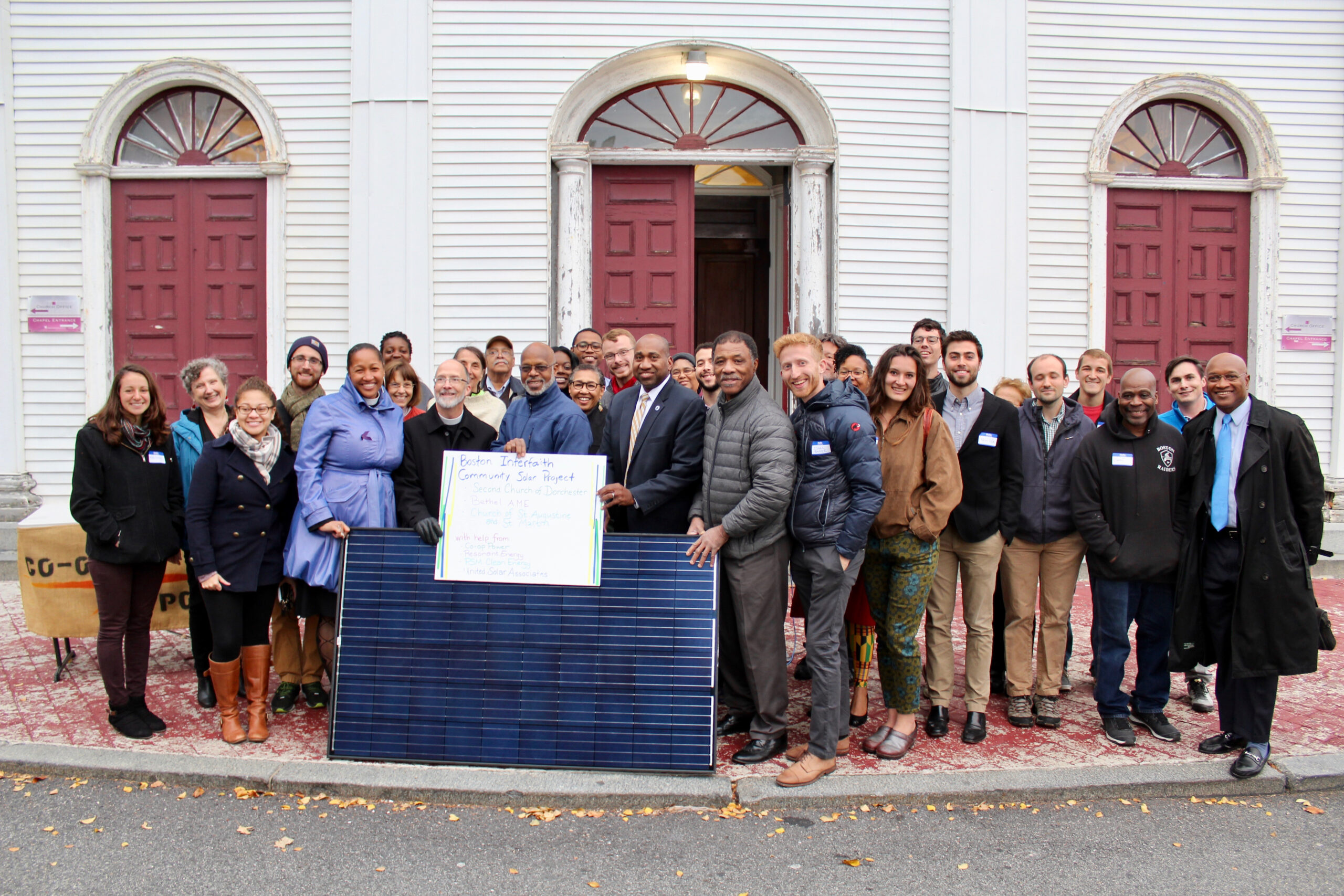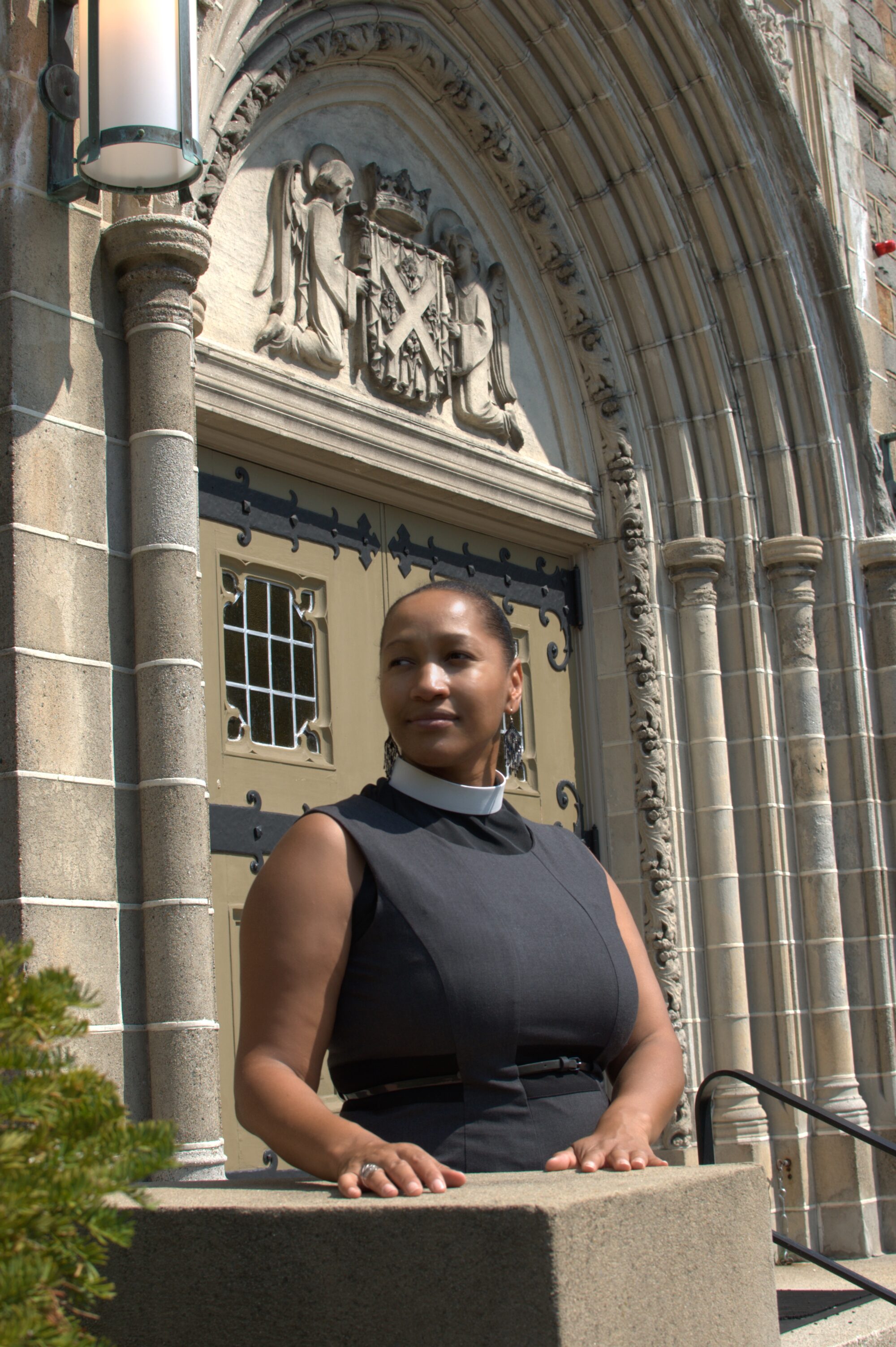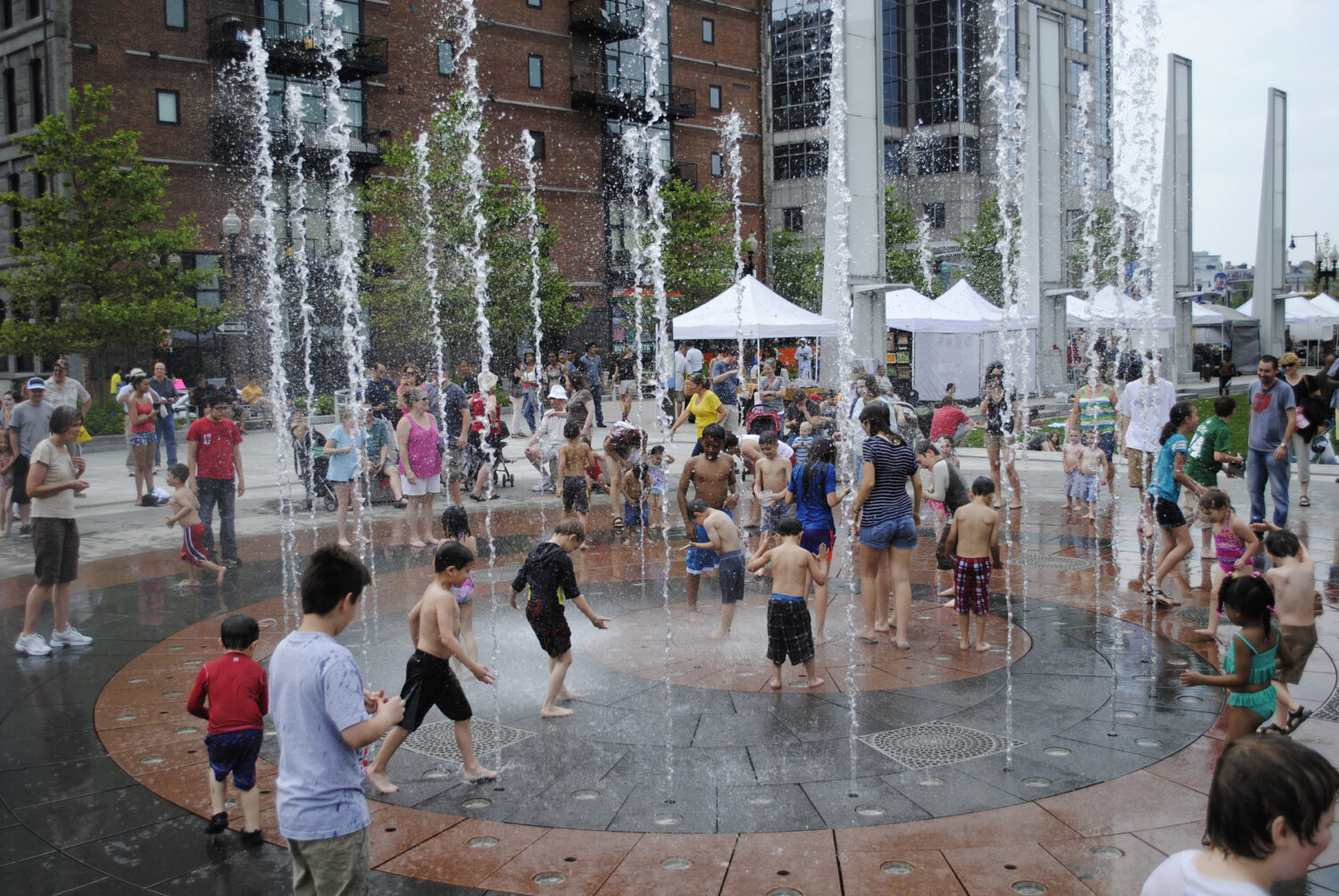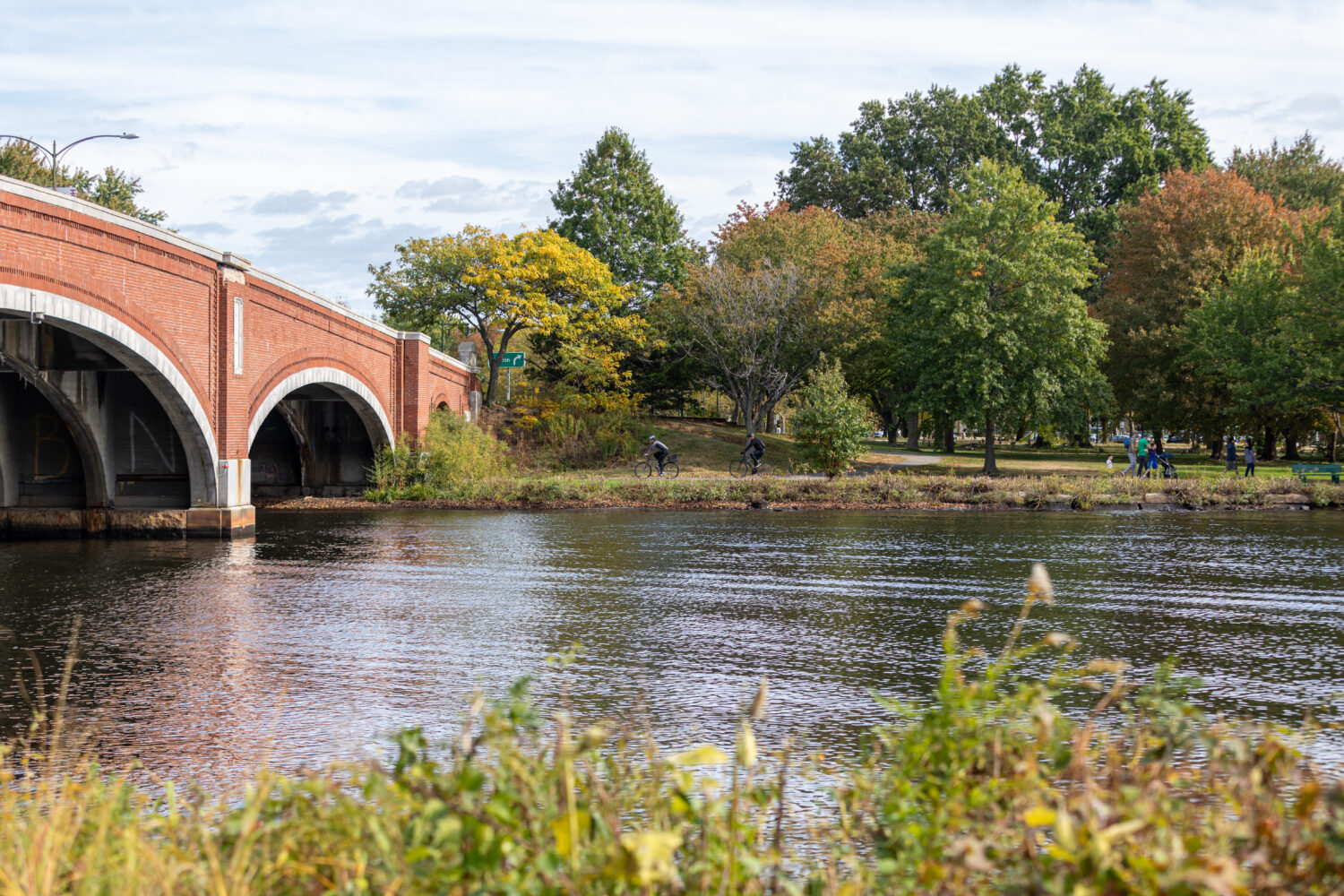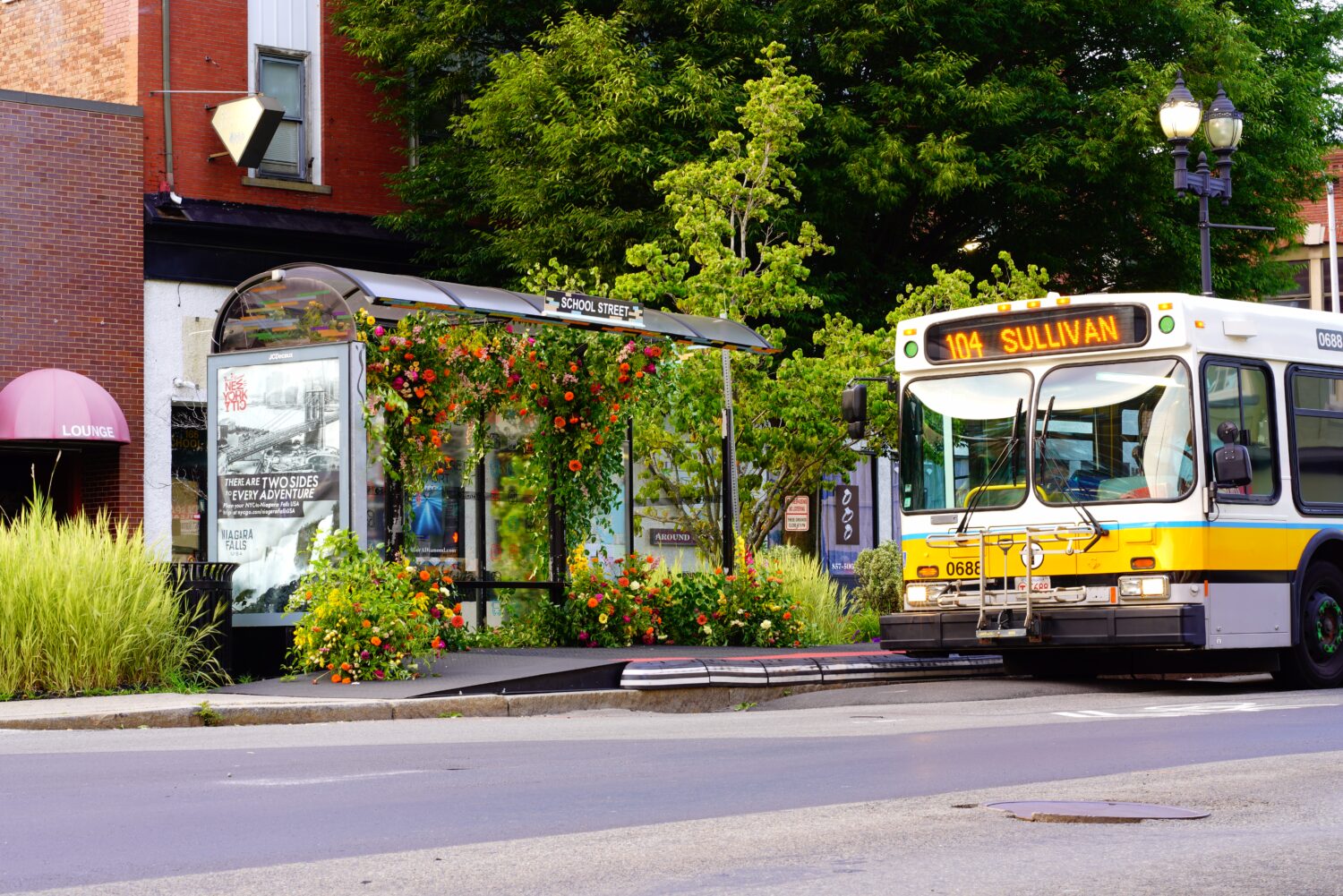Three Boston congregations recently joined forces to put solar panels on their rooftops, capable of producing 70 kilowatts of clean energy to power our congregations. This is equivalent to the amount of electricity required to power about eight homes. Just as the project was getting started, cuts to the state solar compensation program almost killed the project, but we persevered through anyway.
I’m incredibly proud of Second Church (Dorchester), the Church of St. Augustine and St. Martin (South End), and Bethel AME Church (Jamaica Plain), and the staff at Resonant Energy, for our collective hard work and determination to make this project possible.
As people of faith we are asking the question: how can we be stewards of the earth and tackle urgent problems like climate change while also addressing equity issues? Solar on our churches is one great way to start. Our congregation has already invested in exploring how to reduce our impact on the planet in many ways, including water conservation, recycling, and energy efficiency. We saw playing a leadership role in solar energy as another way to walk the talk.
In addition to producing clean energy, a solar installation has many other benefits: it shows us how solar works, lets our community members and our leaders experience it, and illustrates how clean energy can provide additional benefits to our community, like good jobs. This is why we chose solar installers based on their track record of hiring people of color, including someone who lives right in our church’s neighborhood. I’m excited to share this video that we produced to document the project:
In reflecting on the project, which took about 15 months, we learned many things. Here are my three main takeaways from the project:
First, we must take leadership. Our project allows our churches to demonstrate how to contribute to reducing pollution, increasing resilience, and bringing economic benefits to our communities. We learned lessons that we can share with other churches and institutions that want to contribute to clean energy solutions and produce local energy. We are also helping our congregations to think more about the impact that our energy use has on the planet—and on people. We also thought a lot about how local projects like this one catalyze excitement and a sense of ownership, demonstrating what we can do when we work together collectively. People are so proud of our leadership role.
Similarly, it is important to provide tangible local examples for everyone in our community to see that what is possible. Local projects can catalyze excitement and a sense of ownership. Addressing climate change can seem like an overwhelming task for an individual or a congregation, and many people think that small actions don’t make a difference—but I firmly believe that they do. We must have examples in our communities—all of them—to show that clean energy is readily available, affordable, and accessible. We need more churches, businesses, institutions, public agencies, and others to use their buying power to show that this is possible.
Third, the “just transition” to clean energy must be a priority for everyone working to address climate change. To rapidly deploy the amount of clean energy that is needed to meet our climate goals, we must work together to ensure that all members of our community can share in the benefits of clean energy. It is my view that when we are working on clean energy policies and projects, we must be truly inclusive and make sure that communities are driving progress together. And we must understand that climate progress without good jobs, safe housing, and access to health care leaves many people out.
I’m a climate activist. I recognize that putting up solar panels on a few churches is just one step; we have many, many more to go. But this project allows people to see that each of us can be—and must be—part of the green revolution, for our planet and for our neighbors.
Next, we’re going to:
- Help our members learn more about what they can do to reduce their energy use and invest in renewable energy to keep our momentum going.
- Share the video with other congregations to encourage them to go solar. We shared it in March for a gathering of 23 congregations and we are scheduled to share with other local and national faith gatherings this year.
- Seek solutions for more challenging questions like: how can we get the solar revolution to reach renters and low-income communities? How do we get more solar panels in our community on other buildings?
- Educate policymakers and local leaders. We have joined with other congregations and nonprofits to support policies that provide strong incentives for low-income shared solar. We are proud that state Representative Russell Holmes and state Senator Chang-Díaz (each has one of our churches in his or her district) are stepping forward to lead on these issues.
As my friend Alphonse Knight of Second Church in Dorchester said, “the Church is the foundation of the community; it’s where people grow and develop values. When something positive happens here, everyone in the community sees it. Now, we can see the church’s commitment to stewardship right here on our roof.”
As faith leaders, we will keep working to ensure that everyone benefits from the green revolution—especially those who are hit hardest by climate change while contributing least to the problem. We hope that you will join us.
Reverend Mariama White-Hammond is a Barr Fellow (2009) and recently started a fellowship with the Green Justice Coalition, a Barr grantee. Her current fellowship focuses on organizing communities of faith, particularly black churches, to engage on climate issues.
